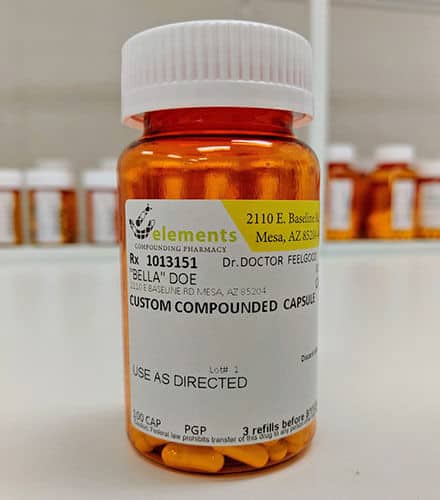fenbendazole 222: How to Use Safely for Dogs and Cats
Recognizing the Advantages and Uses of Fenbendazole in Vet Medicine
Fenbendazole has actually developed itself as a crucial anthelmintic in vet medicine. Its capability to target numerous parasitical infections makes it a useful device for veterinarians. The medication's system disrupts vital cellular procedures in parasites, resulting in reliable therapy outcomes. Nevertheless, its safety profile ranges varieties, demanding mindful consideration in its use. Comprehending these characteristics can clarify fenbendazole's more comprehensive implications in vet treatment and ongoing research study right into its potential past standard applications
System of Activity of Fenbendazole

Usual Parasitic Infections Dealt With With Fenbendazole
A variety of parasitic infections are effectively treated with fenbendazole, making it a functional option in vet medicine. This anthelmintic agent is specifically efficient versus nematodes, including roundworms and hookworms, which frequently affect pet dogs and felines. It is also used for the treatment of cestodes, such as tapeworms, providing a broad spectrum of activity against both sorts of digestive bloodsuckers. Additionally, fenbendazole is beneficial in handling infections triggered by protozoa, particularly Giardia, which can cause stomach distress in animals. Its effectiveness includes dealing with specific lungworms in canines and felines, attending to breathing wellness issues connected to these parasites. Generally, fenbendazole's capacity to target numerous parasitic species makes it a useful device in vet technique, ensuring the health and well-being of animals impacted by these usual infections.
Safety and Efficiency in Various Pet Variety
The safety and security and efficiency of fenbendazole differ among different animal varieties, emphasizing the relevance of species-specific factors to consider in veterinary medicine. In canines, fenbendazole is usually well-tolerated and reliable versus a variety of stomach bloodsuckers, consisting of roundworms and hookworms. For felines, however, its use is less typical and may require mindful application as a result of possible damaging responses.
In animals, such as cattle and lamb, fenbendazole shows effectiveness against various endoparasites, adding to enhanced health and productivity. Nevertheless, the pharmacokinetics and possible adverse effects can differ substantially between types, necessitating mindful examination by veterinarians.
Horses also react positively to fenbendazole, especially for dealing with strongyles and ascarids, though dose and administration paths need to be tailored to their special physiology. Comprehending these differences is vital for optimizing treatment end results and making sure pet welfare across varied varieties.
Administration and Dose Standards
Proper administration and dose standards are vital for making the most of the restorative results of fenbendazole while minimizing prospective negative effects. The dosage usually view publisher site varies depending upon the species being dealt with, the certain problem, and the solution of fenbendazole used. fenbendazole capsules. For pet dogs and cats, a typical dosage is 50 mg/kg body weight, carried out daily for 3 consecutive days, however vets may readjust this based upon private wellness analyses
It is essential to carry out fenbendazole with food to enhance absorption and lessen stomach upset. The drug is offered in various types, consisting of granules and paste, permitting flexible administration alternatives. Monitoring the animal's reaction during and after treatment is recommended to verify effectiveness and safety. Furthermore, vet advice is vital to figure out the proper period of therapy based on the kind of parasitic infection being resolved, assuring optimal results for the animal's health.
Future Point Of Views and Research on Fenbendazole
Study on fenbendazole proceeds to evolve, concentrating on its prospective applications beyond conventional antiparasitic uses. Recent researches have actually explored its efficiency in treating different kinds of cancer, particularly in veterinary oncology. Preliminary data recommend that fenbendazole may inhibit the growth of tumor cells and boost the effects of other chemotherapeutic agents.
In addition, scientists are investigating its function in managing food poisonings in animals, highlighting its anti-inflammatory properties. The versatility of fenbendazole for different varieties questions concerning its safety and security profiles and excellent dosing routines in diverse populations.
As interest expands, there More hints is a need for thorough scientific tests to establish evidence-based guidelines for these novel applications. Future study might also check out the devices behind fenbendazole's effects, possibly paving the method for cutting-edge therapeutic find this methods in vet medicine. The continuous expedition of fenbendazole can significantly boost therapy alternatives for different vet problems.

Frequently Asked Concerns
Is Fenbendazole Safe for Pregnant Animals?
The safety and security of fenbendazole for expecting pets stays unsure. While some studies recommend marginal threat, veterinarians typically recommend caution and often advise versus its use throughout maternity unless the benefits clearly exceed possible risks.
Can Fenbendazole Be Utilized in Animals?
Fenbendazole is generally made use of in livestock to treat various parasitical infections. fenbendazole capsules. Its efficacy versus intestinal worms makes it a valuable anthelmintic, adding to boosted health and wellness and efficiency in pets raised for food and fiber
What Are the Adverse Effects of Fenbendazole?

The side impacts of fenbendazole may include stomach disruptions, lethargy, and allergic responses. In rare cases, extra serious reactions can take place, necessitating mindful monitoring and appointment with a veterinarian throughout therapy.
Exactly How Does Fenbendazole Compare to Various Other Dewormers?
Fenbendazole offers broad-spectrum effectiveness versus numerous parasites, often contrasting positively to various other dewormers. Its special system targets various life phases, making it efficient, while usually providing a beneficial safety and security account contrasted to choices readily available on the market.
Can Fenbendazole Be Used for Dealing With Cancer Cells in Animals?
The capacity of fenbendazole in dealing with cancer in pet dogs has actually gathered interest. Preliminary research studies suggest it may prevent cancer cells cell development, yet even more research study is needed to verify its efficacy and security in veterinary oncology.